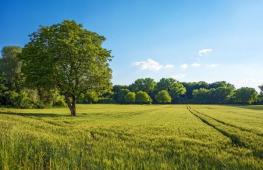Russian nature in poetry
Russian nature, wide, vast and vulnerable, like the Slavic soul, was one of the favorite themes of many famous poets. Modern poets, alas, have not adopted the ability to feel nature as sharply as their talented predecessors. But it is the unity of man with nature that allows you to experience those emotions that make you write brightly, lively, enthusiastically.
Natural beauty as a work of art
Russian nature is truly unique. For all its simplicity, it awakens deep feelings in a person, makes you appreciate and love the surrounding splendor. Only the contemplation of nature can give a person a sense of harmony and absolute, uncomplicated happiness.
Reverence for this beauty, no matter whether a green field or a snow-covered forest stretches before you, always awakens in a person reflections about life, about the meaning of existence and the origins of truth.
Poems about the nature of Russian poets are multifaceted. Russian poetry has always sought to teach the reader not only to appreciate beauty, but also to draw spiritual strength from it. No matter how bad and dark it is in the soul, a person in the bosom of nature always calms down, finds harmony and hope for the best within himself. Withering comes flowering - and the frozen earth comes to life again at a meeting with spring.
So, the poet Nikolai Rubtsov wrote:
Snow fell - and everything was forgotten,
What a soul was full!
My heart suddenly beat faster
It was like I was drinking wine.
No one understands the beauty of Russian nature better than a creative person who feels much more than we, practical pragmatists. Sometimes in the rush of life, we do not notice the surrounding beauty.
Alexander Sergeevich about Russian nature
Perhaps not a single Russian poet wrote about nature so emotionally and vividly. Pushkin, with his characteristic wisdom and the ability to subtly select the right words, praised the beauty of autumn - this is his favorite time of the year, to which many poems are devoted. The poet described the beauty that reigned around, tried to embrace the immensity, paying special attention to details. According to his poems, you can safely write landscapes.
Perhaps one of the most famous poems in which the poet put all his love for this golden season:
Sad time! Oh charm!
Your farewell beauty is pleasant to me -
I love the magnificent nature of wilting,
Forests clad in crimson and gold...

Afanasy Fet. Appreciate every moment
Athanasius Fet, a pure and sincere poet, constantly wrote about nature. Athanasius had an amazing ability to clearly describe the natural phenomena familiar to us, which we foolishly do not notice. Each of his words is saturated with love for nature and the desire to convey to the reader how little he notices in his life. But every moment is valuable - a gust of wind in the face, the touch of a ladybug on the hand, the caress of a sunbeam.
Still light in front of the window,
In the breaks of the clouds the sun shines,
And the sparrow with its wing,
Bathing in the sand, it trembles.
Nature and inner world
Poets who, like no one else, subtly feel not only their soul, but also the soul of each of their readers, connect nature with the inner world of man. No, the description of landscapes and other details of nature are not the background - they are connected with the mood of the lyrical hero by threads that are not visible to everyone.

So, Pushkin in his poem "Flowers the Last Mile" shows how harmonious everything is in nature and in the inner world - birth and death, growth and decay. Alexander Sergeevich also liked to address natural phenomena as living beings.
Many poems on the theme of the seasons can be found in other great Russian writers: Lermontov, Blok, Tyutchev, Yesenin. But the immortal hooligan Yesenin should be discussed in more detail.
Yesenin about nature
Growing up in the countryside, Sergei Yesenin loved and understood Russian nature better than any city dweller. He wrote a lot about her, beautifully and sincerely, often combining it with love lyrics. Sergei Alexandrovich teaches the reader to love the Motherland with sincere and pure love, despite its imperfections - a rickety hut, an old maple, poor bread. But they are ours, close and dear. Russian nature in the poet's poems is so vividly described that it vividly appears before the mind's eye of the reader in all its splendor.

Yesenin devoted many lines to animals, whom he loved very much since childhood. In some of his poems, he addresses our smaller brothers as old comrades. Yesenin sincerely praised natural beauty and dreamed that one day a person would change his mind and stop destroying it. Alas, the passage of time can change little until people change themselves.


